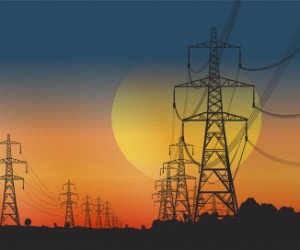South Africa is considered a potential high growth area, and according to a study conducted by Pew Charitable Trusts, a US-based research authority, South Africa is a cornerstone of clean energy development for the entire African continent.
However, an important factor of whether projects within the region will go ahead or not and reach the expected growth is whether they are considered ‘bankable’, or assured to bring in a profit.
There has been an increased demand for solar photovoltaic energy in the South African market. 2012 saw a year-on-year increase of 20 000% to about $5.5 billion in clean energy, with $4.3 billion going towards solar power. In the South African market, where electricity costs are already very high, there is an increasing need for solar energy, and we thus expect the market to grow significantly going forward.
The global market, as well as companies that are operating in South Africa, must show that they are in a position to get economically solid projects up and running. Only those who have their costs under control and are considered 'bankable' will be able to profit from the expected growth in the business of sunshine.
Since the financial crisis, banks have become even stricter when it comes to granting finance and allocating credit. In order to guarantee security and return, borrowers must be able to show that investment and operating costs are able to be financed, and that revenues add up. Yield estimates alone are insufficient for investors. This is why, in the institutional sector, it is 'bankability', the ability to attain bank financing for projects that is the central criteria.
Decisions are made as to whether a company has sufficient external capital for its projects. In addition, the banks will check the profitability and cash-flow against set equity ratios. By means of profitability calculations, yields and costs will be analysed, particularly the discounted procurement and installation costs. Furthermore, the on-going operating costs, made up of management and operating expenses, capital costs, interest charges and repayments, will be put under the microscope.
As a result, 'bankability' is a yardstick for the attractiveness, financial feasibility, pricing and future expectations of photovoltaic projects. It affects both project developers and component manufacturers to an equal extent. As 'bankability' is closely related to the term 'quality- management', and because quality is a term relating to differentiation, bankability is something that can be actively managed by affected parties, particularly by manufacturers.
Solar installations have a particularly long lifetime – around 25 years. For this reason, the quality of the components used and the long-term creditworthiness of the manufacturer are key deciding factors in project evaluation. A certification from banks is far from a certainty for manufacturers, and the requirements in terms of actual market consolidation are likely to rise further.
In order to ensure bankability Talesun works closely with renowned banks, insurance and re-insurance firms. Our efforts help the financing of projects, not only on the yield side, but also in supporting the evaluation process by the financial institutions. In addition, the business has also been assessed by Allianz Climate Solutions (ACS), which is the environmental division of top global insurance company, Allianz Group.
According to the assessments by ACS, the high level of automation at the recently constructed production facility, together with the many years of expertise held by Talesun's management team have had a positive effect on the evaluation of Talesun's 'bankability' - the degree to which a company can be depended on for future profitability.










